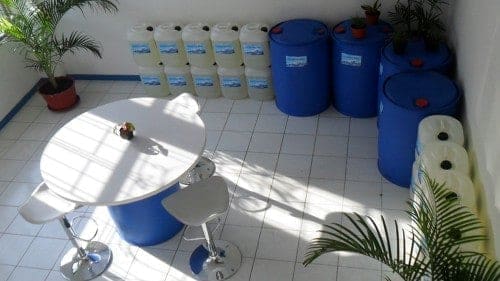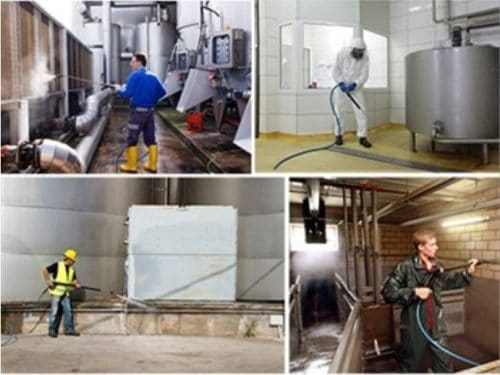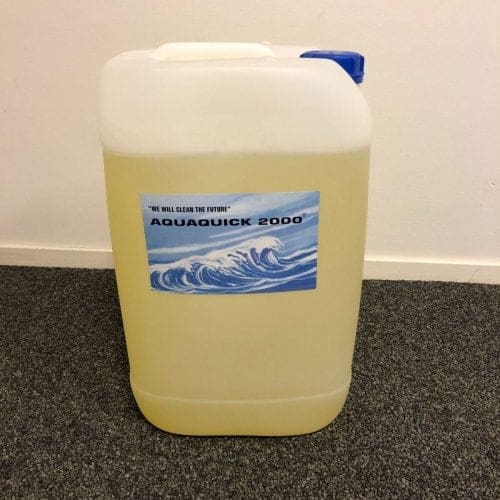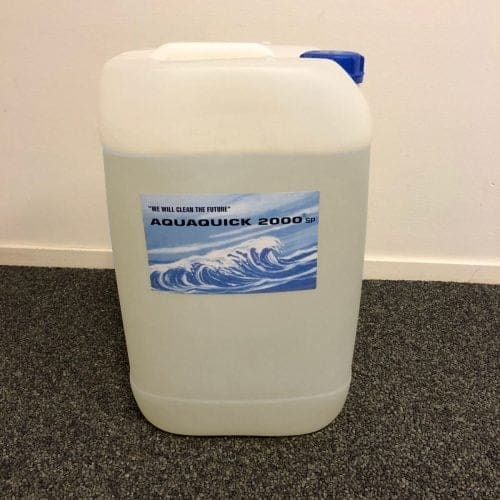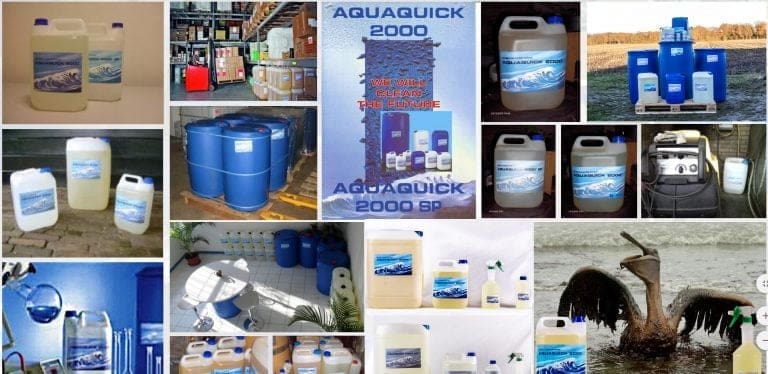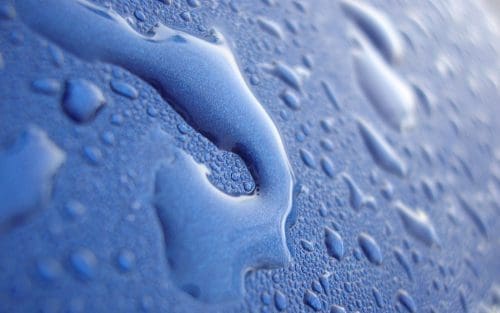Introduction
How can you effectively clean your kitchen without harsh chemicals? Where can natural degreasers be applied to combat grease buildup in industrial settings? In what ways are these eco-friendly solutions revolutionizing cleaning practices? Natural degreasers offer simple yet powerful solutions to common cleaning challenges, from kitchen countertops to industrial machinery.
They play a vital role in maintaining cleanliness while minimizing environmental impact. As awareness of sustainability and health concerns continues to grow, the demand for eco-friendly cleaning alternatives has surged. In this context, the use of natural degreasers has become increasingly prevalent. These cleaning agents are derived from organic sources and effectively break down grease and grime without the use of harsh chemicals, offering a safer and more environmentally conscious solution for various cleaning needs.
Definition of a natural degreaser
A natural degreaser is a cleaning agent formulated using organic ingredients, such as citrus extracts, vinegar, baking soda, or plant-based oils. These ingredients contain properties that can effectively dissolve grease and oil without posing significant harm to the environment or human health.
Choosing Eco-Friendly Solutions
Using harsh chemicals in traditional degreasers harms both the environment and human health. These chemicals can contaminate water sources and endanger aquatic life, while also posing health risks to individuals. Natural degreasers offer a safer alternative, reducing our ecological footprint and creating healthier living and working spaces. However, for tough cleaning jobs, AquaQuick provides a powerful yet environmentally friendly solution. It combines effective cleaning with sustainability, bridging the gap between traditional degreasers and eco-conscious alternatives, making it suitable for various cleaning needs.
Types of Natural Degreasers
Natural degreasers offer an eco-friendly alternative to traditional chemical-based cleaners, harnessing the power of organic ingredients to effectively remove grease and grime. In this section, we’ll explore various types of natural degreasers, including citrus-based, vinegar, baking soda, and plant-based options, detailing their characteristics, benefits, and examples.
1. Citrus-based Degreasers
Citrus-based degreasers utilize the natural cleaning properties of citrus fruits, such as lemons, oranges, and grapefruits. These fruits contain high concentrations of d-limonene, a powerful solvent that effectively breaks down grease and oil.
Characteristics and benefits
- Powerful solvent: D-limonene acts as a natural solvent, penetrating and dissolving grease and grime on surfaces.
- Pleasant aroma: Citrus-based degreasers emit a refreshing citrus scent, leaving behind a pleasant fragrance after cleaning.
- Non-toxic and biodegradable: These degreasers are safe for the environment and human health, containing no harsh chemicals or synthetic fragrances.
- Versatile: Suitable for various surfaces, including countertops, appliances, floors, and even outdoor equipment.
Examples
- Homemade citrus degreaser recipe: Combine citrus peels (lemon, orange, or grapefruit) with vinegar and water. Let the mixture sit for several days to infuse, then strain and dilute for use as a natural degreaser.
- Commercial products like Citra Solv: Citra Solv is a popular brand known for its natural ingredients and effectiveness in degreasing. It harnesses the power of citrus extracts to deliver powerful cleaning performance while minimizing environmental impact.
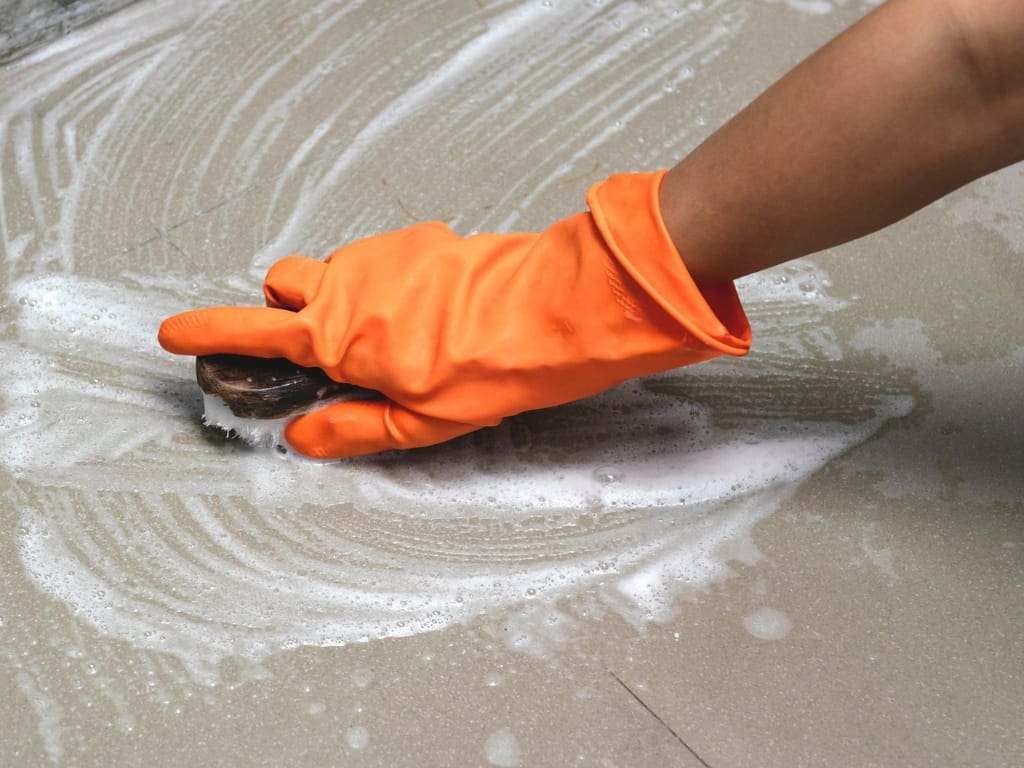
2. Vinegar
Vinegar, particularly white vinegar, is a versatile and widely available natural degreaser. It contains acetic acid, which helps break down grease and oil while disinfecting surfaces.
Properties and effectiveness as a degreaser
- Acidic properties: The acetic acid in vinegar acts as a solvent, breaking down grease molecules and facilitating their removal from surfaces.
- Disinfectant properties: Vinegar possesses mild disinfectant properties, making it effective for sanitizing surfaces in addition to degreasing.
- Versatility: Vinegar can be used on various surfaces, including kitchen countertops, stovetops, and bathroom fixtures.
Applications and limitations
- Light to moderate degreasing tasks: Vinegar is effective for removing light to moderate grease buildup on surfaces. However, it may struggle with heavy-duty grease stains.
- Strong odor: Vinegar has a distinctive odor that may linger after cleaning. While the smell dissipates over time, some individuals may find it unpleasant.
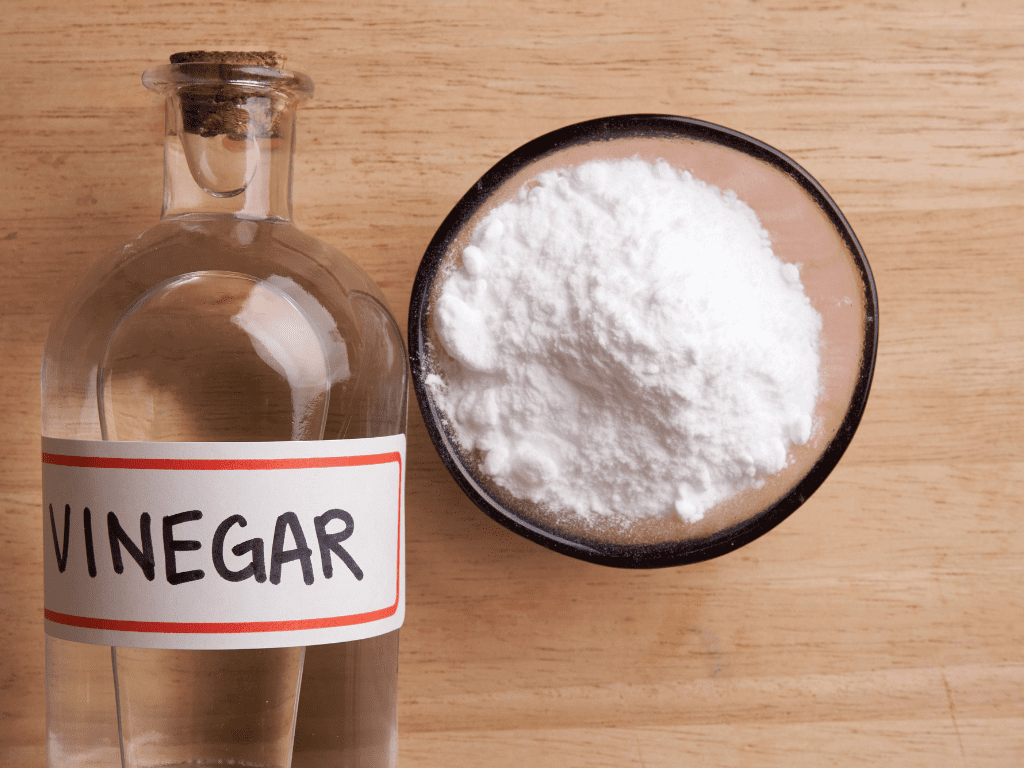
3. Baking Soda
Baking soda, or sodium bicarbonate, is a versatile household ingredient known for its abrasive properties and mild alkalinity. It is commonly used as a natural cleaner and deodorizer, including for degreasing purposes.
Abrasive properties for grease removal
- Abrasive action: Baking soda acts as a gentle abrasive, allowing it to scrub away grease and grime without scratching surfaces.
- Neutralizes odors: Baking soda helps neutralize unpleasant odors, making it an effective deodorizer in addition to a degreaser.
- Safe and non-toxic: Baking soda is safe for use in homes and poses minimal risk to human health or the environment.
How to use baking soda as a degreaser
- Paste: Mix baking soda with water to form a thick paste. Apply the paste to greasy surfaces, such as stovetops or oven interiors.
- Scrubbing: Use a sponge or brush to scrub the baking soda paste into the grease, focusing on areas with stubborn buildup.
- Rinsing: After scrubbing, rinse the surface thoroughly with water to remove the baking soda residue and dissolved grease.
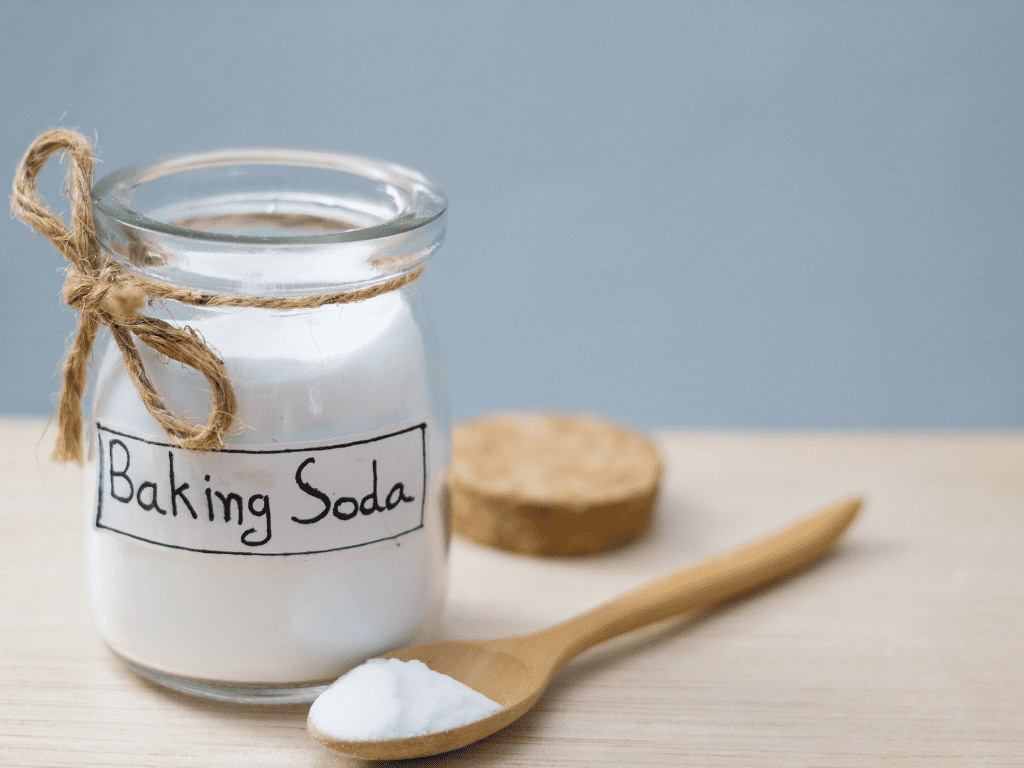
4. Plant-based Degreasers
Plant-based degreasers utilize natural oils, such as soybean or corn oil, as their primary cleaning agents. These oils contain surfactants that help break down grease and oil molecules, making them effective for degreasing surfaces.
Derived from natural oils like soy or corn
- Surfactants: Plant-based oils contain surfactants, which lower the surface tension of water and help emulsify grease and oil.
- Biodegradable: Plant-based degreasers are biodegradable and environmentally friendly, breaking down into harmless compounds over time.
- Safe for use: These degreasers are non-toxic and pose minimal risk to human health, making them suitable for use in homes and commercial settings.
Examples
- Simple Green: Simple Green is a popular brand known for its plant-based cleaning products, including degreasers. It utilizes natural ingredients to deliver effective cleaning performance while minimizing environmental impact.
- Seventh Generation: Seventh Generation offers a range of eco-friendly cleaning products, including plant-based degreasers. These products are free from harsh chemicals and synthetic fragrances, making them safe for use around children and pets.

5. Essential Oil-based Degreasers
Essential oils, such as tea tree oil, eucalyptus oil, and lavender oil, possess natural antibacterial and antifungal properties, making them effective for degreasing surfaces. When combined with other natural ingredients like vinegar or baking soda, essential oils can enhance the cleaning power of homemade degreasers while imparting a pleasant scent.
Characteristics and benefits
- Antimicrobial properties: Essential oils have antimicrobial properties that help kill germs and bacteria, making them suitable for disinfecting surfaces in addition to degreasing.
- Aromatherapy benefits: Many essential oils offer aromatherapy benefits, promoting relaxation and stress relief during cleaning tasks.
- Customizable blends: You can create customized degreaser blends by combining different essential oils to target specific cleaning needs or preferences.
Examples
- Tea tree oil degreaser: Combine water, vinegar, and a few drops of tea tree oil to create a natural degreaser that effectively cleans and disinfects surfaces.
- Lavender oil degreaser: Mix baking soda with water and add a few drops of lavender oil for a gentle yet effective degreaser with a soothing aroma.

6. Alcohol-based Degreasers
Alcohol-based degreasers, such as rubbing alcohol (isopropyl alcohol) or ethanol, can effectively dissolve grease and grime on surfaces. These degreasers evaporate quickly, leaving behind a clean and streak-free finish.
Characteristics and benefits
- Fast drying: Alcohol-based degreasers evaporate quickly, making them ideal for cleaning tasks where rapid drying is desired.
- Effective solvent: Alcohol dissolves grease and oil effectively, making it suitable for degreasing surfaces in kitchens, bathrooms, and other areas prone to grease buildup.
- Disinfectant properties: Alcohol has antimicrobial properties that help kill germs and bacteria on surfaces, contributing to a cleaner and healthier environment.
Examples
- Rubbing alcohol degreaser: Mix rubbing alcohol with water in a spray bottle and use it to degrease countertops, appliances, and other surfaces.
- Ethanol degreaser: Dilute ethanol with water and add a few drops of essential oil for fragrance. Use this solution to clean and degrease surfaces throughout your home.
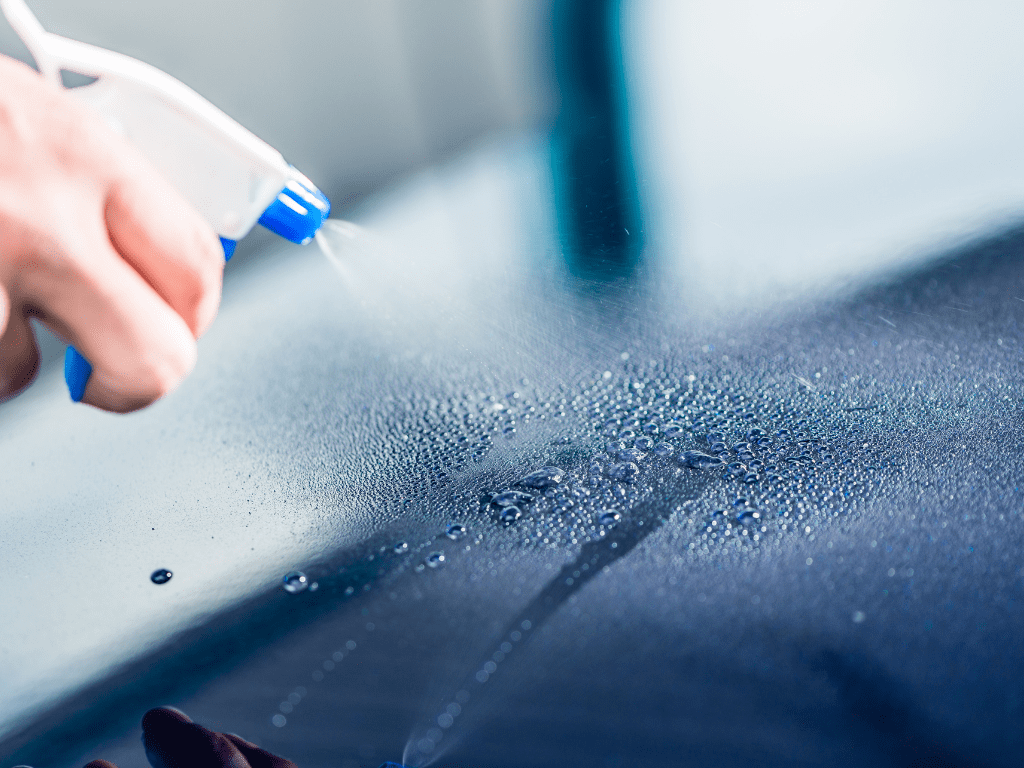
7. Enzyme-based Degreasers
Enzyme-based degreasers harness the power of enzymes to break down grease and organic matter on surfaces. These degreasers are particularly effective for removing tough stains and odors caused by grease buildup.
Characteristics and benefits
- Biological action: Enzymes break down grease molecules into smaller, more manageable compounds, making them easier to remove from surfaces.
- Long-lasting effects: Enzymes continue to work even after application, providing ongoing cleaning and deodorizing benefits.
- Safe and eco-friendly: Enzyme-based degreasers are biodegradable and environmentally friendly, making them a sustainable choice for cleaning tasks.
Examples
- Commercial enzyme-based degreasers: Many commercial cleaning products, such as laundry detergents and drain cleaners, contain enzymes to break down grease and organic matter effectively.
- Homemade enzyme cleaner: You can create a homemade enzyme cleaner by fermenting fruit peels or vegetable scraps with sugar and water. Once fermented, strain the liquid and use it as a natural degreaser for various surfaces.

Advantages of Natural Degreasers
Natural degreasers offer numerous advantages over traditional chemical-based cleaners, making them a preferred choice for environmentally conscious consumers. Here are some key advantages:
Environmental benefits
- Biodegradability: Natural degreasers are made from organic ingredients that break down into harmless compounds over time, reducing their impact on the environment.
- Reduced pollution: By using natural degreasers, we can minimize the release of harmful chemicals into the air and waterways, helping to preserve ecosystems and wildlife habitats.
- Sustainable sourcing: Many natural degreasers use renewable resources, such as citrus fruits or plant-based oils, which can be harvested without causing long-term damage to the environment.
Health considerations
- Non-toxic: Natural degreasers are free from harsh chemicals and synthetic fragrances, reducing the risk of respiratory irritation or skin allergies.
- Safe for pets and children: Because they contain natural ingredients, these cleaners pose minimal health risks to household pets and children, providing peace of mind for families.
Cost-effectiveness
- Affordability: Many natural degreasers can be made at home using simple ingredients like vinegar, baking soda, or citrus peels, offering a cost-effective alternative to commercial cleaners.
- Multi-purpose: Natural degreasers often have multiple uses, such as cleaning countertops, appliances, and floors, eliminating the need for separate cleaning products and saving money.
Versatility in applications
- Wide range of surfaces: Natural degreasers can be used on various surfaces, including countertops, appliances, floors, and outdoor equipment, making them versatile cleaning solutions for different areas of the home or workplace.
- Effective on different types of grease: Whether it’s kitchen grease, automotive oil spills, or machinery lubricants, natural degreasers can effectively break down and remove grease from surfaces.
IV. Drawbacks and Limitations
Despite their many benefits, natural degreasers may have some limitations that users should be aware of:
Effectiveness on heavy-duty grease
- Limited effectiveness: Natural degreasers may struggle to remove heavy-duty grease buildup or stubborn stains, requiring additional scrubbing or repeated applications to achieve desired results.
- Specialized formulations: For particularly tough grease stains, users may need to supplement natural degreasers with more potent cleaning solutions or mechanical methods.
Potential residue or odor
- Residual film: Some natural degreasers, such as those containing vinegar or essential oils, may leave behind a residue on surfaces if not rinsed thoroughly, affecting the appearance and feel of the cleaned area.
- Strong odors: Certain natural degreasers, like vinegar-based cleaners, can have a strong odor that may linger after cleaning, potentially causing discomfort for sensitive individuals.
Need for frequent application
- Less persistent: Natural degreasers may require more frequent application compared to chemical-based cleaners to maintain cleanliness, especially in high-traffic or heavily soiled areas.
- Regular maintenance: To effectively manage grease buildup, users may need to incorporate regular cleaning routines using natural degreasers to prevent excessive accumulation.

Introduction to AquaQuick
AquaQuick represents a revolutionary approach to degreasing, offering powerful cleaning capabilities while prioritizing environmental sustainability. Here’s an overview of AquaQuick and its features:
Overview of AquaQuick as an eco-friendly degreaser
- Environmentally conscious formulation: AquaQuick is formulated using environmentally friendly ingredients that break down grease and oil spills without harming the environment or aquatic life.
- Biodegradable: Unlike traditional chemical degreasers, AquaQuick breaks down into harmless compounds over time, reducing its impact on ecosystems and waterways.
- Non-toxic: AquaQuick is safe for use in various settings, including marine environments, automotive shops, and commercial kitchens, as it contains no harsh chemicals or toxic fumes.
Features and benefits
- Powerful cleaning performance: AquaQuick effectively breaks down grease and oil spills on a wide range of surfaces, including concrete, metal, machinery, and marine vessels.
- Versatile application: From cleaning up oil spills in marine environments to degreasing engines in automotive shops, AquaQuick offers versatile cleaning solutions for different industries and applications.
- Fast action: AquaQuick works quickly to dissolve grease and oil, allowing for efficient cleanup and minimizing downtime in industrial settings.
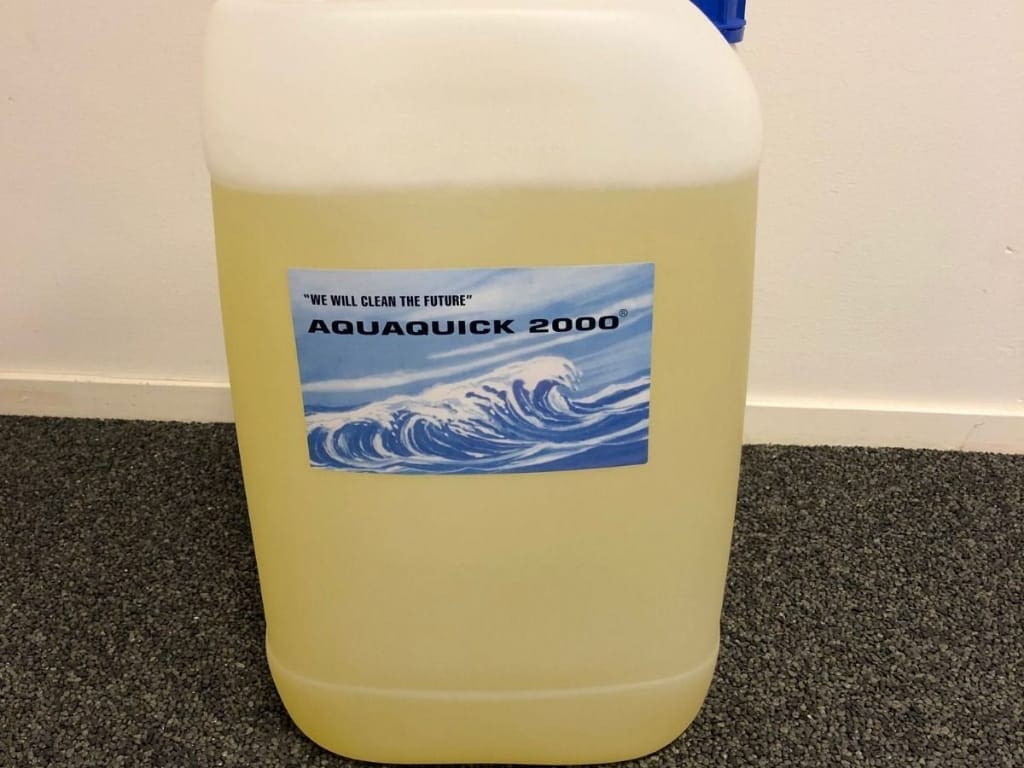
Applications in various industries: marine, automotive, commercial kitchens
- Marine industry: AquaQuick is used for cleaning up oil spills and removing grease buildup on ships, docks, and other marine equipment, helping to protect fragile marine ecosystems.
- Automotive industry: AquaQuick is effective for degreasing engines, machinery, and automotive parts, facilitating maintenance and prolonging the lifespan of equipment.
- Commercial kitchens: AquaQuick is ideal for removing grease and oil stains from kitchen surfaces, equipment, and ventilation systems, ensuring a safe and sanitary food preparation environment.
AquaQuick vs. Natural Degreasers
As the demand for environmentally friendly cleaning solutions continues to rise, the comparison between AquaQuick and natural degreasers becomes crucial. Here’s a detailed comparison in terms of environmental impact, effectiveness, and safety considerations:
Environmental impact comparison
- Natural degreasers: While natural degreasers offer a more sustainable alternative to chemical cleaners, their environmental impact can vary. Ingredients like citrus extracts, vinegar, and plant-based oils are generally biodegradable, reducing their long-term impact on ecosystems. However, their production and transportation processes may still contribute to carbon emissions and resource consumption.
- AquaQuick: AquaQuick sets itself apart with its eco-friendly formulation that prioritizes sustainability. As a biodegradable degreaser, AquaQuick breaks down into harmless compounds over time, minimizing pollution and preserving environmental integrity. Its production and distribution processes are optimized for reduced environmental impact, making it a greener choice for cleaning operations.
Effectiveness on different types of grease and oil spills
- Natural degreasers: While effective for light to moderate grease buildup, natural degreasers may struggle with heavy-duty grease and oil spills. They may require repeated applications or additional scrubbing to achieve satisfactory results, especially in industrial settings where grease accumulation is common.
- AquaQuick: AquaQuick’s powerful formulation ensures effective removal of various types of grease and oil spills, including petroleum-based and organic oils. Its fast-acting properties enable efficient cleanup, minimizing downtime and maximizing productivity in industrial applications. AquaQuick’s versatility makes it suitable for tackling grease and oil spills across different industries, from marine to automotive and commercial kitchens.
Safety considerations: non-toxicity, biodegradability
- Natural degreasers: Natural degreasers are generally non-toxic and safe for use around humans, pets, and the environment. Their biodegradable nature ensures they pose minimal harm to ecosystems and waterways, making them a safer choice for cleaning tasks in residential and commercial settings.
- AquaQuick: AquaQuick goes a step further by offering a non-toxic, biodegradable degreaser that prioritizes safety without compromising effectiveness. Its environmentally conscious formulation eliminates the risk of harmful chemical exposure for workers and minimizes the impact on aquatic life and habitats. AquaQuick’s commitment to sustainability extends to its entire lifecycle, from production to disposal, ensuring minimal ecological footprint.
Final Thoughts:
In conclusion, the choice between natural degreasers and AquaQuick underscores the importance of eco-conscious decision-making in cleaning practices. While natural degreasers offer a commendable solution for everyday cleaning needs, AquaQuick emerges as a superior option for industrial applications and heavy-duty spills. Its powerful cleaning capabilities, coupled with its eco-friendly formulation and safety considerations, make it a compelling choice for businesses and industries committed to sustainability. By embracing greener alternatives like AquaQuick, we can not only achieve effective cleaning results but also contribute to a cleaner, safer, and more sustainable future for our planet.


